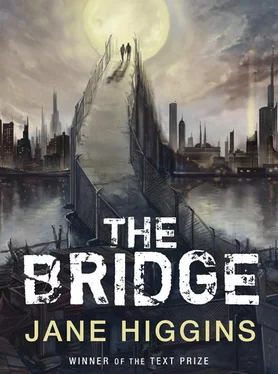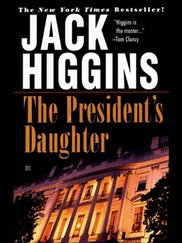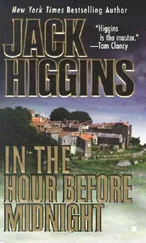She told me that he had been her assistant in active service years before, and a stalwart supporter of CFM since he was my age. Now he was dying – some kind of slow unpicking of his bones and muscles. ‘He has a lot of pain and we do what we can to get medicine. It’s not easy.’ He was sitting in the main room, a book on his lap, but his eyes were clouded over, as if they’d seen enough of the world, more than enough, and didn’t want to look anymore.
‘Long stories,’ Levkova said to me when he’d dozed off after a ramble about the Crossover – the mass expulsion of Breken workers from the city in ‘48. He’d been part of that. He was seventeen.
‘I don’t mind long stories,’ I said. And that was no lie. I didn’t know the stories every Breken kid had chewed on since they’d cut their teeth. What I did know was that Max’s story didn’t mesh at all with the history I’d been taught. The Crossover – the expulsion of workers and the closing of the bridges – yes, I knew about that. That’s when the gates were built, Cityside and Southside, on every bridge. But, as Max told it, there was a general strike leading up to the Crossover – a strike for wages. Not higher wages, just wages, rather than food and rent vouchers. I knew nothing about that. Or about the demonstrations and rioting that followed. Or about a massacre by city forces that ended it all. The survivors carried their dead back over the river. Every Crossing since then – like the one for Tamsin that Fyffe and I had seen – was an echo of that first one. Max was old and rambly, but he didn’t strike me as deluded or dishonest.
‘Well,’ Levkova was saying, ‘you are more polite than many. What about your own?’
‘My own what?’
‘Story, Nik. Your own story.’
‘Oh.’ I shook my head. ‘It’s short and boring.’
‘I wonder.’
After a while I said, ‘Do you know any Citysiders? Did you ever meet a good one – an honorable one?’
She paused. ‘Once or twice, long ago. But when it came to allowing us freedom across the river – even they struggled with that. They’re born to privilege, Nik. They can’t let it go. You must never trust one. But I’m sure you know that.’
I wanted to tell her. I was inching towards it. Inching got me as far as saying, ‘My friend, the one I came here with – she’s working in the infirmary. I need to tell her what’s happened, where I am, otherwise she’ll think I’ve been sent back to Gilgate.’
She shook her head. ‘Wait a day or so – they’ll be watching her.’
A day or so was impossibly long. I lay awake that night, counting minutes, and when I was sure that Levkova and Max were asleep I threw on all the clothes I had and went to look for Fyffe.
The snowstorm had passed, leaving a clear, freezing night. I breathed out white fog, and my boots crunched on frosted ground. I hid inside the coat’s big collar and deep pockets and stuck to the shadows. There were still people about, heading back from patrol or venturing out for a smoke. They stood together in threes and fours stamping the ground and talking about the explosions upriver, the snow, rationing, and hungry kids; about who was sick and who needed medicines that weren’t there, had never been there because of the city blockade; about the ones they’d buried and the ones they expected to bury before winter’s end.
My head was full of those conversations by the time I got to the infirmary, and I thought how ordinary they sounded. So much about these people was ordinary. No one was dancing gleefully on the grave of the city, no one was eating children. But for all that, someone here had Sol, and I had to get him back.
I found a boarded-up doorway on the end of the riverside wing and crouched on the step, watching the infirmary. Now and then its door opened in a rectangle of yellow light, and figures hurried down the steps and away into the dark. I waited until the sky began to pale. I didn’t see Fyffe.
Max was dozing in his armchair when I went back to Levkova’s. I put a brick of peat on the fire and sat in front of it wondering what to do. The flames struggled back to life and I decided that if I couldn’t find Fy by the end of that day, I had to tell Levkova who we were and ask her for help. And hope she’d be so busy with her own troubles she wouldn’t care where we came from.
‘Long night, youngster,’ said Max.
‘Yes, sir. Sorry I woke you.’
‘No, no. Way you creep around, you’re not gonna wake anyone. Scare the life out of someone maybe, way you appear like that, outta nowhere. But you’re not gonna wake anyone ‘cept maybe the dead. But tell me now.’ He sat up and put what looked like a prayer book aside. ‘You’re afire with something. Comes in the room with you. Follows you round. Is it a girl?’
‘No, sir.’
‘What then?’
‘It’s nothing.’
‘No one’s wound that tight over nothing.’
‘I’m cold, that’s all.’
‘You don’t want to tell, that’s fine by me. But a secret like that, it weighs you down. Hollows you out.’
‘Aren’t you cold? Do you want this coat?’
‘No. She gave it to you.’ He sat back. ‘Safan’s, that was. A good man. They had a child – him and Tasia. Pia, they called her. She was a sweet thing.’ I knew as soon as he said that, that I didn’t want to hear what was coming. But he told me. ‘They came on a sweep one day. City boys. Guns and uniforms. Sky-high confident, like they always are. Said they was looking for bombs, like they always do. Tasia was away from home, but Safan was there, and the child.’ He peered in my direction. ‘Your age she was. And the city boys. Your age too. Her father fought, as any man would. Tasia found them when she came home. Long ago that was. Long ago. Where are you going?’
‘Out.’
‘You’ve just come in.’
‘Yeah.’
‘Cold out there, youngster. Wrap up.’
I stood in the archway to the graveyard and looked across the compound. There was movement here and there in the gray nearly-light – people coming out of prefabs pulling on boots and jackets and stomping off in clouds of breath to visit the washrooms before the rush to get ready for drill. I thought about how close I’d come to telling Levkova who I was. But now, I never could. Because who could forgive what we’d done to her family? Wouldn’t you want revenge? If two city kids came asking for help, why would you show any mercy at all?
I turned away from the buzz outsideand went back into the house. I couldn’t face Max or Levkova, so I scrambled over the barricade of broken furniture that lay across one of the hallways and groped my way in the dark to the end of it. There I found a door and, through it, a cavern of a room. It was empty except for a couple of benches along one wall. The leaking roof dripped into puddles and dribbled down the windows frames. But those windows. They hit me with a memory of home – of school – sharp as the pain in my ribs.
It must have been a chapel once. The windows were tall stained glass with figures just showing themselves against the early light outside. How they’d survived when so much else was rubble I don’t know. But survived they had and, now, with the sun starting to light them up, they took me straight back to morning prayer at school.
Dash and Fyffe and Bella sitting in their pew, two rows in front of Lou and Sol and me. The sun shining through the golden windows, Fyffe’s hair glowing like a halo. Stapleton droning on at the pulpit, bald head gleaming, big white hands gripping the red cover of the lectionary, and none of us paying him any attention. Too busy watching each other.
‘Hey!’ said a voice behind me. I jumped about a mile.
Читать дальше












